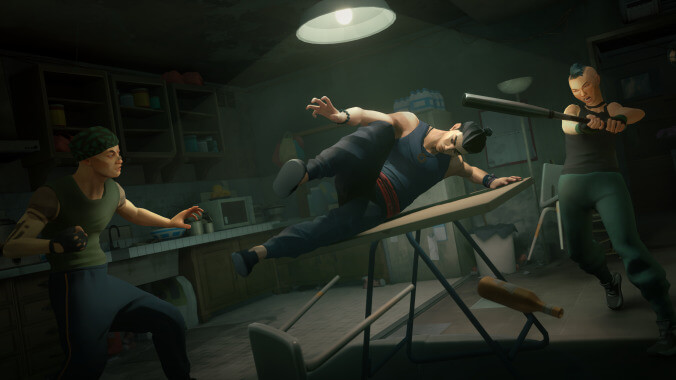At its best, Sifu has the goofy grace of a playable Jackie Chan movie
Sloclap’s fast-moving kung-fu game has its flaws, but its cinematic ambitions are hard to resist

The key moment to understanding Sifu, the glossy new martial arts game from Absolver developer Sloclap, arrives about 15 minutes into the game’s story of kick-and-punch-based vengeance. That’s when your player character barges into a hallway in a rundown tenement, only to see a dozen or so goons arrayed along its length, primed for murder. With a certain inevitability, the game’s camera quietly slides from behind your hero’s back and into a mid-distance side shot. The baddies rush. And you (hopefully) proceed to systematically dismantle them in a display of bravura hand-to-hand violence.
All that’s really missing is the hammer.
Not that Park Chan-Wook’s is the only filmography Sloclap is cribbing from here; Kill Bill, for instance, is baked right into Sifu’s structure, down to a list of comic book-ish assassins that slowly gets crossed out as you progress through its simple story of a child seeking revenge on their parent’s killers. And that’s to say nothing of god knows how many more authentic kung-fu movies the game lifts its various fights, locales, and moves from.
At its best, Sifu manages to accurately replicate the high-energy, tightly choreographed grace of those classics, going full old-school Jackie Chan with its improvised broom combat and casually hurled bottles into mooks’ faces. There’s a powerful high that comes from ducking under an enemy’s kicks in the middle of a crowded club, knocking their feet out from under them with a quickly propelled footstool, and then proceeding to pound them into paste. Or getting knocked back through a table in a secretive drug lab, grabbing a broken piece of furniture as a weapon, and rallying a high-speed counter-offensive. As the game teaches you to scale its increasingly brutal learning curve, it only becomes a better and better action movie, transforming from the blunders of “Guy Who Keeps Getting Smacked In The Back Of The Head By Low Level Thugs” into something much more flowing and balletic.
 Keep scrolling for more great stories.
Keep scrolling for more great stories.
